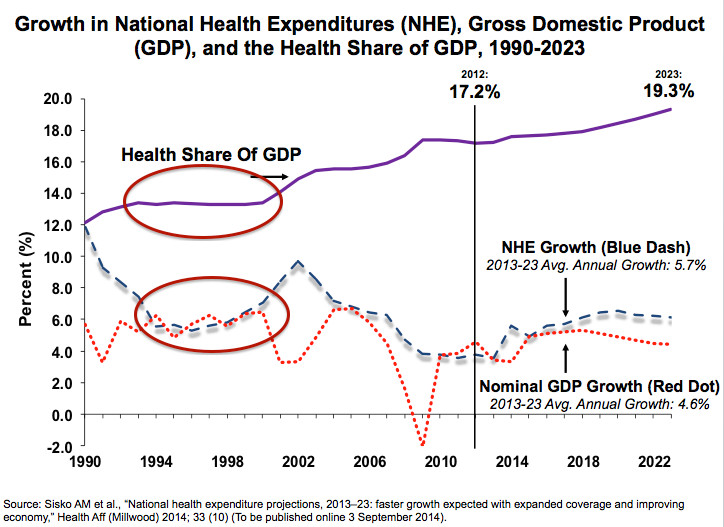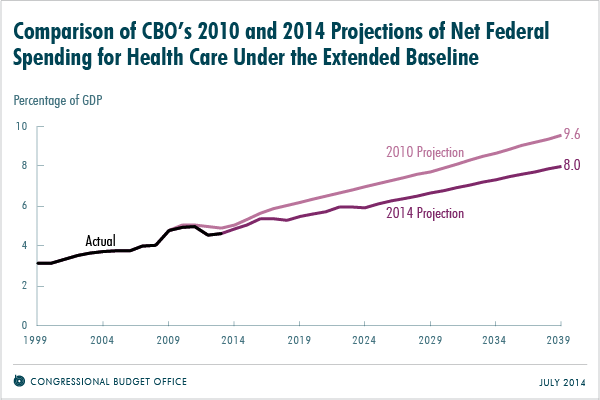[
Funny, I seem to recall a 10% rise in healthcare spending in the first quarter of this year:
Health Costs Resume Their Rise - Forbes
Did you actually read your own article?
Here, I'll give you the money shot.
The slowdown was largely due to the recession. Americans responded to stagnant wages and an uncertain economy by cutting back on medical expenses.
But with the economy picking up once again, health spending has returned to pre-recession levels. In January, it reached historically high levels as a share of GDP. And in February, health spending growth reached a seven-year high, according to the Altarum Institute.
Spending is going up because people are consuming more care. Doctor’s office visits increased by 2.7 percent in 2013. Specialist visits rose 4.9 percent the same year.
Hospitals tallied 13 million more outpatient visits in 2013 — a 3.2 percent increase over 2012. Inpatient visits rose 10.5 percent. Overall, hospital admissions increased 2.6 percent last year.
OH MY GOD, THE ECONOMY HAS IMPROVED ENOUGH WHERE PEOPLE ARE ACTUALLY TAKING CARE OF THEIR HEALTH PROBLEMS!!!! OBAMA'S A MONSTER!!!!
Seriously, you can't make this shit up!





